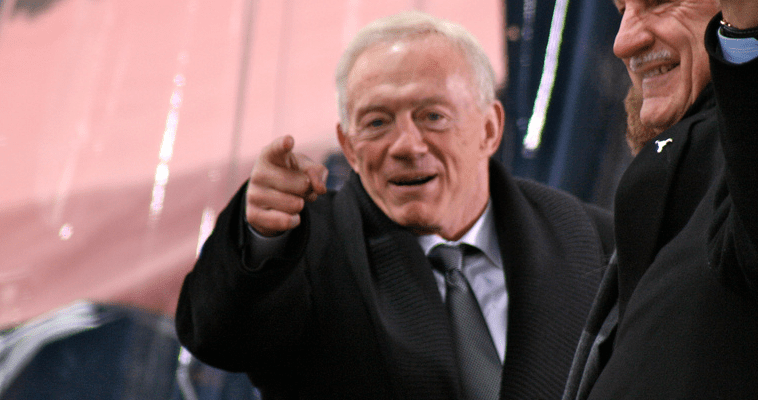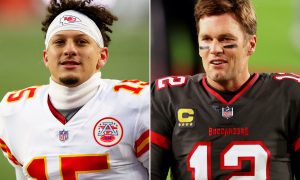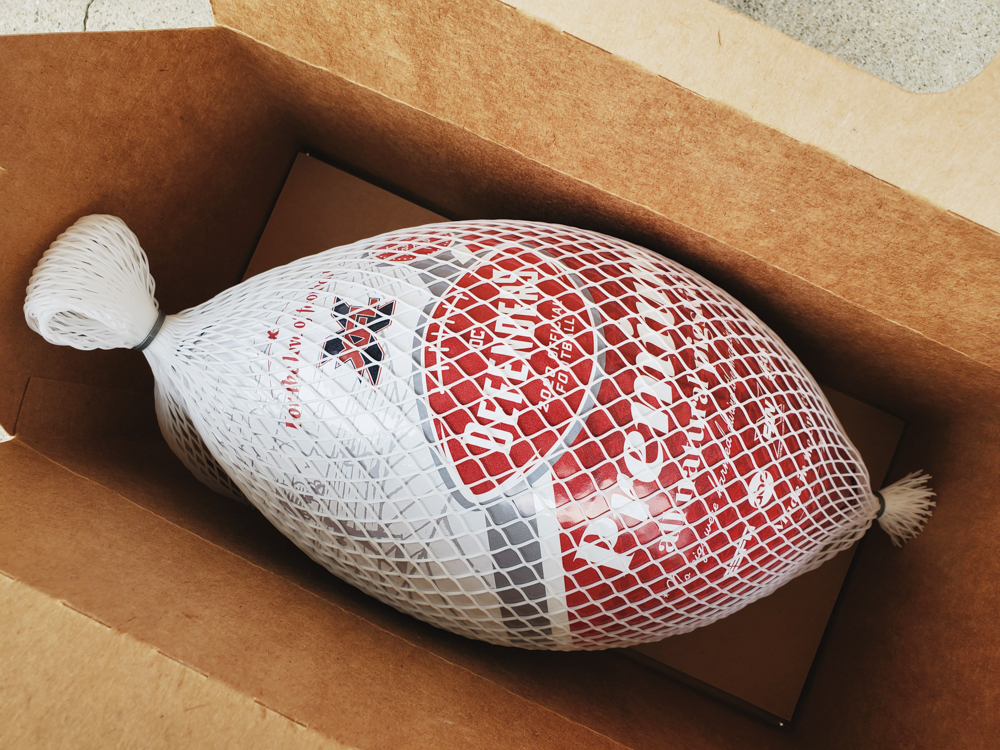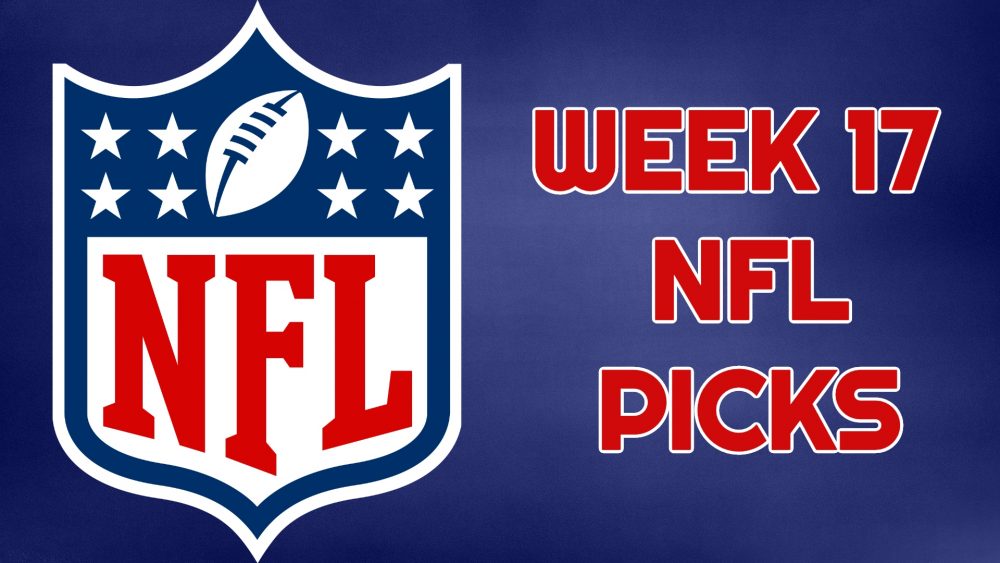
Image courtesy of Algorhythm Labs/Flickr.
Recently a lawsuit of a sexual nature that was launched against Dallas Cowboys owner Jerry Jones was dropped. The NFL allowed this scenario to play out with no involvement from the commissioner, or league sponsors. Before the season began Colts owner Jim Irsay was arrested on drunk driving charges. He plead guilty, and was released with no jail time pending. The NFL suspended Irsay from being at his facility and league activities for six games, more than a player would have received for a similar offence under the leagues code of personal conduct.
Adrian Peterson is currently in trial on child abuse charges in Texas. The league has found a way to suspend him, without actually suspending him, until these matters are resolved. This was mostly due to sponsor pressure, and was not the initial reaction of the team or the league office when facts were first brought to light by the media. Ray Rice was suspended two games for an assault that occurred last February. This suspension was changed to an indefinite ban when the more graphic video of the same incident was made public. No charges have been filed to date.
The NFL has found itself in so much hot water as of late that they have gone as far as to hire their own committee or task force, to review similar incidents as the occur in the future. One would argue that the real issue is not the conduct of the players or any other league related personnel the NFL employs. Like any company you will have model employees and you will have problematic ones. The problem that I have is the inconsistency with everything, and I do mean everything. To be clear this is not an arrow directed at the NFL. This is a series of grievances about all the major North American sports leagues, and a few ideas of what could make all of this easier for the fan, player, and team. The examples are all NFL (because they seem to be the most public), but the ideas can and should apply to all of the major sports leagues. Let’s begin at the bottom.
Ray Rice’s actions were despicable. He absolutely deserves to be suspended by the league. Furthermore I think incidents like this should result in league fines, with all the money going to centers for abuse (or whatever the offense is). With that said my opinion didn’t change when I saw the tape that shows Rice punching his then fiancé (now wife). I felt like the league was far too lenient when they handed out the two games, and they have now given Rice cause for his appeal. It’s not legally correct to punish someone for an offense and then punish them further for the same offense. That will be the argument from Rice’s lawyers at the appeal. The other part of this equation is that Rice hasn’t been charged. This is a grey area to say the least. Players of any professional sport have to be held to a higher standard. Some offenses that evade local law enforcement need to be punishable by the league. We do have to be mindful though of due process, and “innocent until proven guilty”, because that is still a thing, I think.
Adrian Peterson fully admitted to disciplining his child in a forceful way, what is on trail in Texas is the degree of that force. Technically the punishment wasn’t illegal, so long as it didn’t endanger the child. The question here isn’t if Peterson hit his son, it’s if he hit his son too hard. This case was brought forward many moons ago, and the prosecution didn’t believe that he had done enough to warrant an arrest. That tune changed pretty quickly after the Ray Rice incident was put out there. The team and the league were going to allow AP to practice with the team, and perhaps even play, until Budweiser publicly voiced its displeasure. Peterson was placed on the commissioner’s exempt list that allows the team to keep Peterson on the roster, pay him, but not count his presence towards the roster, or his salary towards the cap. There aren’t enough shades of grey to get into this. Ultimately the league is doing what they can in a bad situation involving one of their premier stars, but we will get into how I think this should have gone down.
Jim Irsay’s case is actually pretty cut and dry when it comes to the facts. He drank, he drove, he got caught. Where the water gets murky is around the punishment. On the one hand, the athlete is being held to a higher standard as he/she is a role model to many young people. An owner does not gather the same admiration from the impressionable youth. On the other hand, one can’t make the “he was just a kid without an understanding of what he was doing” argument for most owners. Owners, in large majority throughout sports, are men who are 50 years of age or older. Irsay was 12 when his father purchased the Baltimore Colts, which were later relocated to Indianapolis. He has always known this life, so for him to do something like this is beyond idiotic. With that said, is it fair to hold an owner or a coach to a higher standard than a player, and does that higher standard mean greater punishments?
Jerry Jones is an ancient billionaire, who believes the world revolves around his stadium in Texas. I have no doubt that he has had more than his fair share of contact with strippers, and women of that ilk. I also have no doubt that there are situations where he goes too far, or they do. Jones may or may not have done something illegal. The woman who launched the suit may or may not have been paid to drop it. Jones was never asked to remove himself from team activities during the course of this suit, nor did any sponsor voice displeasure about it (that I am aware of). For all we know this was entirely fabricated in an effort to extract money from someone who arguably has too much. But in the same breath I see players having privileges related to the game of football being removed before they are prosecuted or convicted.
This really isn’t about legal; so much as it is about fair. To me constancy is the key to fairness. That doesn’t mean everyone has the same rules, but it does mean that the rules are applied with the same force and due process no matter who breaks them. Superstar or benchwarmer, owner or equipment manager, you will all see your cases treated in the same way. So let’s begin with how to fix this.
Sponsors: You are not allowed to publicly say anything! You paid your money; your product is promoted as per your contract. If you’re not happy with the people your product is being associated with take your sponsorship somewhere else. This doesn’t mean that you can’t tell someone at the league office that you’re not happy,
or that you’re thinking of cancelling your sponsorship contract with the league, it just means you can’t go on television and complain. I am certain a competitor will be more than happy to take your place if you do opt to walk away.
Players: If a player is incarcerated, or under any kind of sanctioned confinement (i.e. house arrest) he/she will not be permitted to play or participate in any team activity. So far, this is simple. If a player is arrested he/she will be presumed innocent until proven guilty, either in a court of law or by an independent review of the case conducted by a third party. Lawyers can try to drag cases out indefinitely, so the key here is making sure that if the player isn’t pleading guilty or no contest that a judge needs to be gathered from some neutral area and we need to go Judge Judy on this stuff. Actually, Judge Judy might be the perfect person. 22 minutes and we have a verdict. A grid of fines based on a percentage of a player’s salary for common offences will be created. The second time an offence is committed the fine is doubled, and a suspension of 10% of league games is levied. Third offence is quadruple the fine and a 25% league game suspension. Fourth offense is a year ban and all contracts terminated. All monies go to a charity that benefits the victims of similar offenses. If multiple offences are committed as part of the same act all fines and suspensions should be processed as part of the same act. If a player is incarcerated for these discretions any suspensions take place after that player is released. Really this is all about making it simple. You could even get sponsors to input on the fines, and maybe some of the offenses should be worse than others, but really if what someone has done is that bad than the jail time should be part of the suspension.
Coaches/Owners/League: Same rules as the players, same grid. The percentages might be the same too, or you might have to change them for someone like a coach or an owner. Suspensions could be slightly higher as well. I do think the people the players are supposed to be calling “boss” ought to be held to a higher standard, and to me that does mean more financial and more time away if they screw up.
League: Once the punishment is handed out that is IT! Media pressure, sponsorship pressure, your mom calling and saying “you have to do something about this Roger”; I don’t care. New tapes, old tapes, first hand accounts from Rob Ford that he and the person in question smoked crack together; I don’t care. Having things change on the fly is just too annoying. You agree on the grid with the players union and the owners and it’s locked. The next time the contract comes up you look at it again, but until then it is what it is. Your only loophole here is you can go and talk to the player’s agent and make a plea that they voluntarily do _________________ as a service to the image of the league, but that has to be up to the player. As a fan the fine and suspension does not change how I feel about a team or the sport. It might change how I feel about a player, but that’s it. As a player I don’t want to have to second-guess and go through arbitrations and all that to try and figure out if I’m playing or not this week. As a team the same logic of knowing exactly what is going on applies. It’s helpful in game planning, be it for your player’s absence, or against a team with a player in legal hot water.
Before I end this I want to point out two cases that ran their courses. Michael Vick was arrested for his connection with a dog-fighting ring. He went to jail, his contract with the Falcons was voided, and when he was released he went right back to work, winning the starting job as the Eagles quarterback, currently a backup for the Jets. Plaxico Burress shot himself at a nightclub and was arrested on gun related charges. He spent three years in jail, and returned and played for the Jets and Steelers before retiring. Both of these players were not model players, but they didn’t have excessive wrap sheets either before their respective incidents. They served their time, lost their contracts, came back and contributed without a massive backlash from sponsors or fans. I don’t agree that the league didn’t punish either of these players for their actions, but aside from that I liked how they were handled. The players did their time, came back, and were allowed to contribute. We all make mistakes, and we deserve second chances, but actions should have consequences as well. The key is finding that balance, and once you do making sure everyone walks the same line. As long as the rules are easy to understand and enforced equally I will get on board.
















